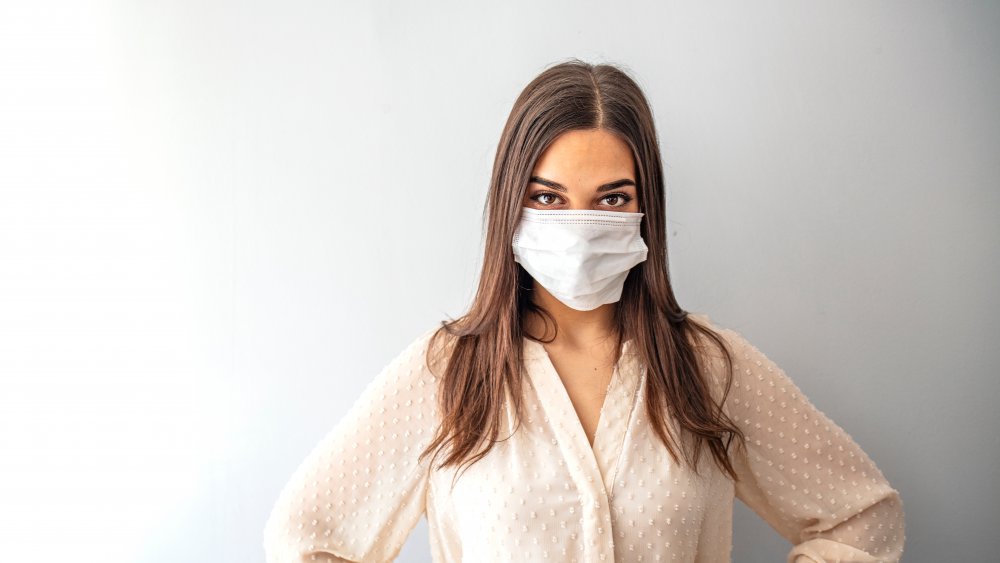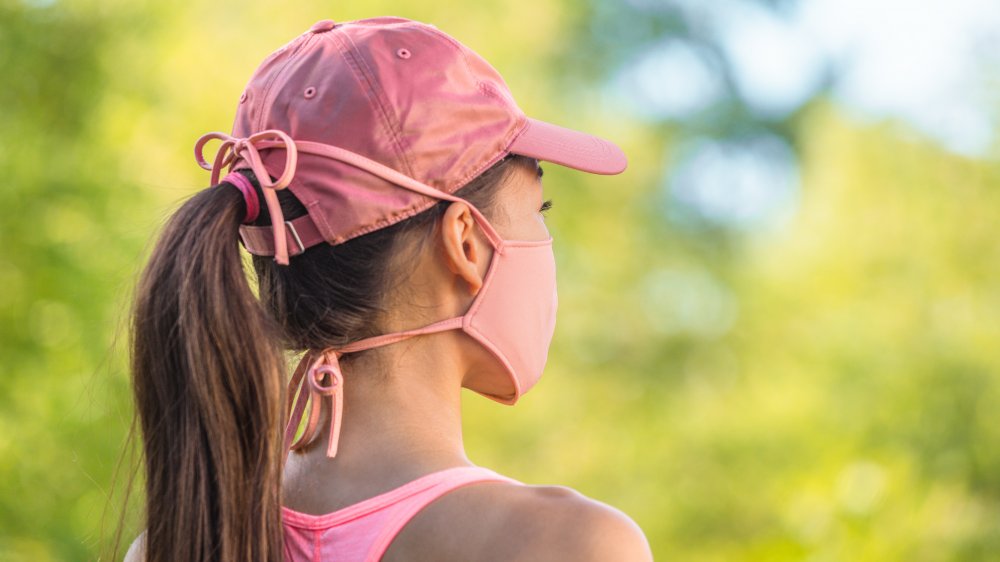This Is How To Stop Your Face Mask From Hurting Your Ears
As the coronavirus pandemic drags on, the protective practice of wearing masks might be irritating you — literally. The American Academy of Dermatology (AAD) notes that masks can cause skin problems ranging from acne to rashes and itchiness — plus, the ear loops can make your ears feel sore (via the AAD).
For ear soreness, dermatologists recommend switching between masks with different styles of ties and earloops each day. Try one with cloth strips that tie behind the head and neck instead of elastic.
If you're wearing a mask for long periods in public instead of just brief trips while running errands, your ears also might benefit from taking a 15-minute mask break every four hours, the AAD says. Only remove your mask after washing your hands and when it's safe to do so, such as inside your car when you're alone or outdoors, allowing at least 6 feet between yourself and other people.
Dermatologists also recommend washing a cloth mask after each use to remove skin cells and oils that collect inside the mask, causing acne. No doubt cleaning the straps is beneficial as well.
Try a different mask style to give your ears a break
Health care workers may not have the ability to take mask breaks, so they've become creative. Some have sewn large buttons onto their scrub caps or surgical caps as places to anchor their face masks, giving their ears a rest (via Nurse.org). Others have adapted this idea to other headgear, sewing buttons onto cloth headbands and ballcaps above the ears, then looping the mask straps around the buttons (via Health).
If you're not quite that handy, cut an old T-shirt into a long strip, drape it across the top of your head (like a headband), and thread each end of the fabric through an ear loop before tying the fabric behind your head. A number of creative sellers with 3-D printers also have made plastic strips with several notches that secure the straps behind your head instead of your ears; search for "face mask ear saver" on Etsy.
Be sure to follow a gentle skincare routine, including washing your face after wearing a mask and applying petroleum jelly to any irritated spots before bed. Petroleum jelly is designed to protect your skin so that it can heal, dermatologists say (via AAD).


